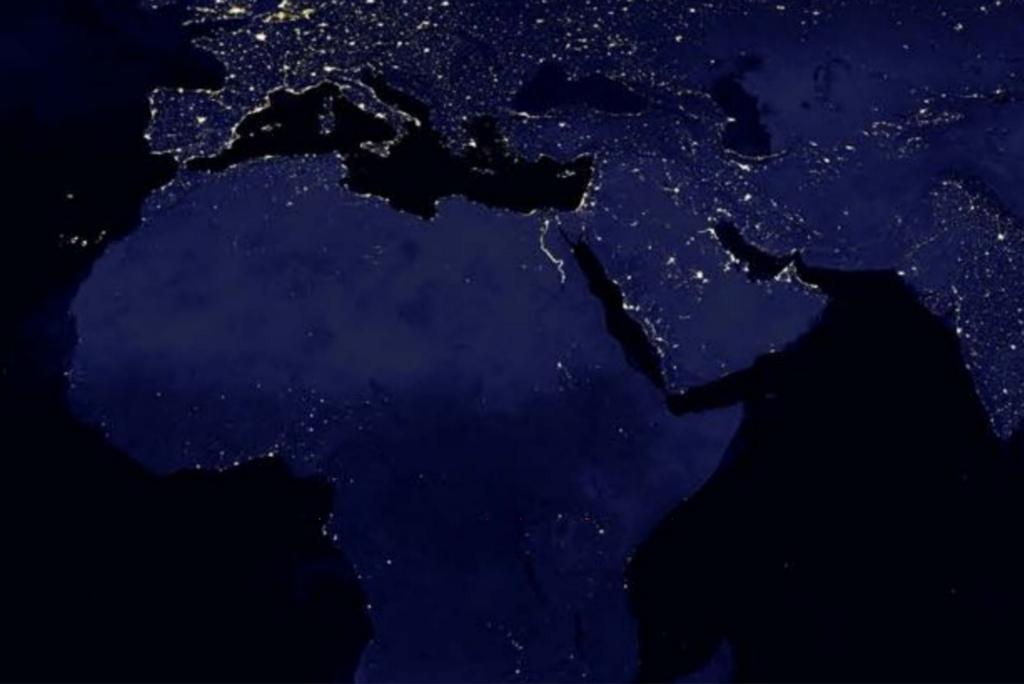Nighttime satellite photos show a great expanse of darkness occupying most of the African continent, while Europe and North America twinkle with light. The Atlas of Africa Energy Resources, from the UN Environment Program and the African Development Bank, confirms an African energy crisis that will get worse as energy demand increases with population increase, urbanization and economic growth.
Africa has the world’s lowest per capita energy consumption: With 16 per cent of the world’s population, it consumes about 3.3 per cent of global primary energy. 645 million people, about a third of the total African population, do not have access to electricity. The poorest African households spend 20 times more per unit of energy than wealthy households. More than half of Africans depend on biomass for cooking, space heating and drying. Burning that biomass releases black carbon into the environment. It also causes deadly indoor air pollution that contributes to the premature deaths of about 1.3 million people, mostly women and children, each year, and, according to the Atlas, will soon kill more people than malaria and HIV/AIDS combined.
The Atlas also serves as a guide to Africa’s huge renewable energy potential. As much as 93% of the country’s hydropower potential remains untapped, along with abundant wind, solar and geothermal potential. This week, Access Power committed $7 million to a solar project in Tanzania, a hydro project in Rwanda, and a wind project in Ghana. And the European Commission is investing €300 million ($318 million) to develop 19 renewable power projects across Africa.
Tapping renewable resources would go a long way towards achieving SDG 7 (affordable, reliable, sustainable and modern energy for all) and SDG 13 (taking action on climate change). The Atlas “makes a strong case that investments in green energy infrastructure can bolster Africa’s economic development and bring it closer to achieving the Sustainable Development Goals,” says the UN’s Juliette Biao Koudenoukpo.











